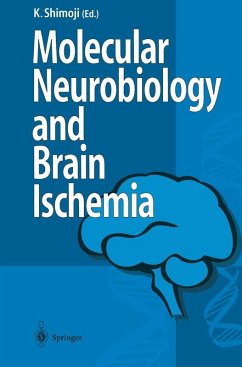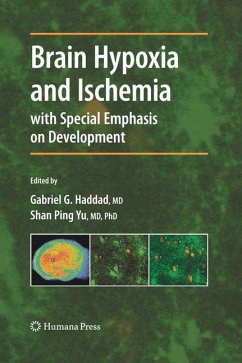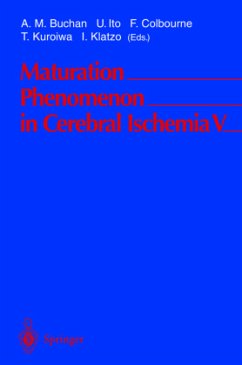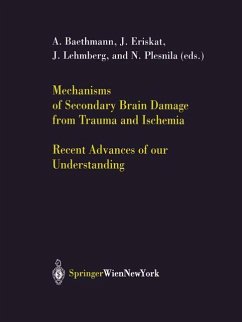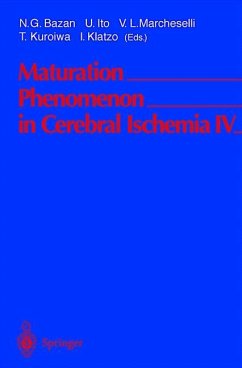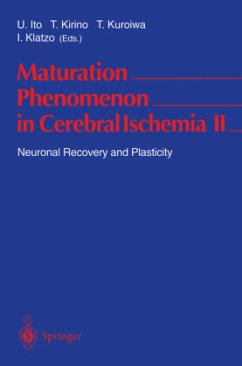
Molecular Biology and Brain Ischemia
Versandkostenfrei!
Versandfertig in 1-2 Wochen
77,99 €
inkl. MwSt.

PAYBACK Punkte
39 °P sammeln!
Cerebral hypoxia/ischemia is a common cause of neurologic dysfunction following cardiopulmonary resuscitation. With the advent of aggressive resuscitatiQ,il ;m.ethods to treat cardiopulmonary arrest, more patients are surviving to live with posthypoxic/ postischemic neurologic syndromes. Thus, there is an urgent need to understand the basic aspects of the problem. This monograph consists of reviews from :s'c5ientists using advanced techniques for basic research into the molecular neurob~ology of the mechanisms and effects of cerebral hypoXia/ischemia, and from cliniciahs ~ctively involved in m...
Cerebral hypoxia/ischemia is a common cause of neurologic dysfunction following cardiopulmonary resuscitation. With the advent of aggressive resuscitatiQ,il ;m.ethods to treat cardiopulmonary arrest, more patients are surviving to live with posthypoxic/ postischemic neurologic syndromes. Thus, there is an urgent need to understand the basic aspects of the problem. This monograph consists of reviews from :s'c5ientists using advanced techniques for basic research into the molecular neurob~ology of the mechanisms and effects of cerebral hypoXia/ischemia, and from cliniciahs ~ctively involved in managing patients with these syndromes. The first five chapters contain several basic topics of neurobiology to help under stand brain function, followed by five chapters that deal with the mechanisms of cerebral hypoxia/ischemia and potential protective measures against it. The first chapter describes functional proteins in the presynaptic terminal which regulate transmitter release. This is followed by a chapter demonstrating the molecu lar structure and physiological function of the glutamate receptor channel, which may determine the rate and quantity of calcium ion influx into the nerve cell. The third chapter surveys the metabolic glutamate responses and the intracellular mechanisms believed to play an important role in pathogenesis of hypoxic/ischemic cell injury. The fourth chapter deals with long-term potentiation and drugs, the basis for under standing memory disturbance caused by cerebral hypoxia/ischemia. The fifth chapter describes distributions of nitric oxide synthase mRNAs in the brain, currently one of the most advanced fields in neurobiology.





